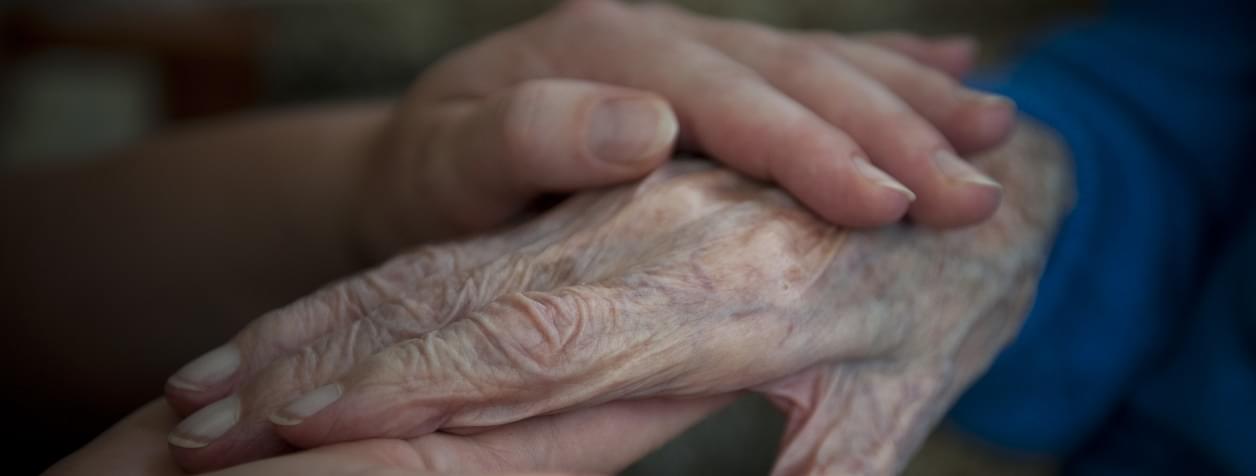A witness of hope
By Kevin Flanagan, Founder & Director of St. Antony’s Centre for Church & Industry, Manchester (CSAN member charity)
Little did I think life would change so dramatically in a few weeks as the Covid-19 pandemic swept across the world! While no one is exempt from its ravages, it is clear the older you are, the greater the risk you face from the infection itself. The Government has asked us to work from home and those aged over 70 to self-isolate even more strictly.
The very nature of our humanity as social beings is being restricted, for a limited period we hope, in order to achieve a greater good, the protection of the vulnerable and all of us from the ravages of this organism. A tiny organism that is sadly taking many lives, feeding fears & anxieties, sapping hopes, and threatening the very foundation of our global economy. It has changed dramatically how we interact with each other; in our family, streets and across communities at home and globally.
I am soon to become a ‘pensioner’ as I reach State Pension Age, but thankfully my mind and heart feel young. I took advice in the 1980s to ‘opt out’, only to find when the previous pension scandal struck, I was placed back in the state pension. Now, my state pension will be reduced weekly, based on a valuation of what my private pension should be worth, but clearly isn’t. World markets have plummeted and the value of pension pots is falling yet again: this will have waves of impact in the years to come as private pension income values are reduced and the hoped-for security in retirement is further eroded. Pensioner poverty will continue to grow even more, as will the necessity for people to work longer during their ‘retirement’ years in sickness or in health, in order to survive.
I live on my own, following the death of my wife Liz three years ago. I have experienced the sense of loneliness and loss. It’s not a comfortable place for social beings to be in. I’m blessed with a loving family and friends, yet many people don’t; in the face of Covid-19 their isolation is now greater as movement outside the home is restricted and they are separated from loved ones.
At St. Antony’s Centre for Church and Industry, like many organisations in the Caritas network, our phones have been very busy with people seeking assistance. A lady in her 70s, working as a cleaner in a hospital to supplement her pension, now torn between following self-isolation instructions by the Government and her desire to serve at a time of need, asks, ‘Should I self-isolate and will I lose my pay?’
We support the Blackpool Centre for Unemployed in winning thousands of pounds on appeal for those refused benefits, transforming despair to hope.
To assist people quickly to get the guidance and help they need, St. Antony’s Centre is shifting from face-to-face working and training, to converting our social communications systems to share expertise and knowledge on employment rights and welfare support. The development of new online tutorials, advice sheets and blogs to help those unfamiliar with digital communications tools to improve their ability to keep in touch with family members. For those struggling in the world of work, made redundant or self-employed, our advice sessions now take place by phone, helping people where possible to stay employed. We have seen a rise in those facing redundancy or laid off unpaid.
Our Spirituality Project, Life to the Full, providing that essential spirit of joy and reflection rooted in Ignatian spirituality in people’s lives, is now running through private consultations held via live video links.
Charities and welfare agencies across the Caritas network in England and Wales face uncertainty as they have to weave a cloth of love, care and service, rooted in the Gospel, on a new loom still in the making. The real challenges of providing personal care to many, while protecting our employees as carers, is a delicate balancing act. Charities in the front line need additional help now so they can respond quickly to the thousands impacted daily by this crisis. We see the wafer thin membrane of survival and despair melting, as people experience a loss of control and exclusion. People look to CSAN’s member charities for an authentic witness as the “Church of the Poor”, the face of Christ and true hope reflected through our services with them, a service of joy singing with deep love above the crisis of gloom.
St Antony’s Centre for Church & Industry was established in 1979 to reflect Catholic social thinking in action, in the world of work and wider community.
This article was first published in The Catholic Times. Any views expressed belong to the author.

